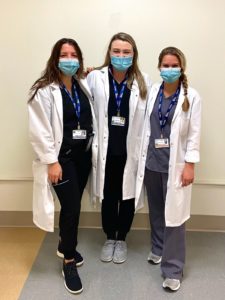While many SNFs are struggling to rebuild census in the aftermath of Covid-19’s decimation, don’t be surprised if your speech therapy department is seeing an increasing amount of activity. A high-performing speech therapy department should be seeing each new admission for a PDPM assessment to ensure accuracy of coding and capturing valuable PDPM dollars. After all, the SLP component has the highest dollar variation than the other PDPM components. Operating a speech therapy department under PDPM is much different than under a RUG system.
Want to perform our 6-point speech therapy department checkup? Let’s get started:
PDPM SLP Component Coding
Begin with an audit of a random sample of PDPM assessments and comparing them to the MDS. Verify the accuracy and make certain you have received proper credit. If there is an abundance of scores at the SA level, make certain your speech therapist has a good understanding of the requirements for the SLP Component.
Clinical Documentation
Ensuring that the documentation supports the skilled intervention is a never-ending project. In most instances, compliance audits can be done remotely by another clinician. Do you know where to begin? Have you discussed audit risk with your clinical reimbursement consultant?
Medicare Part B Patients
Are your long-term care residents being screened for dysphagia and cognition? How about other speech-language issues? This is where your speech therapist should shine! Also, make sure your team is on the lookout for cognition issues in post-Covid patients.
FEES Testing
If you aren’t doing FEES at your building, do you know why not? FEES is widely considered a quicker, safer, and more cost-effective alternative than a Modified Barium Swallow. FEES are also performed right at the bedside, rather than sending the patient to the hospital for several hours with a staff member. Sending patients out to the hospital provides a strain on the building. If you haven’t considered FEES for your SNF, it is time to investigate.
Dysphagia Treatment
Treating swallowing disorders is at the heart of medical speech therapy. Trained medical speech-language pathologists are always on the lookout for signs and symptoms of dysphagia. Being especially vigilant right now with the importance of reducing the risk of aspiration.
Duration of Treatment
Are your patients on a speech therapy program for a clinically appropriate amount of time? Are they making gains in relation to their goals? Is the speech department seeing a lot of patients for “Eval Onlys?” This is another place for a compliance audit.
Do you have any questions on where to get started, or what your speech therapy department productivity should look like? Give us a call. We are glad to be a resource to you.



